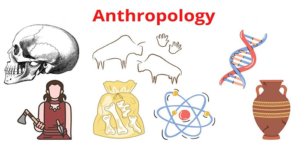
Microeconomics is a branch of economics that studies how individual households and businesses make decisions about how to allocate their resources. It looks at how people and companies make decisions about what products to buy and how much to produce. It also studies the pricing and distribution of goods and services. Macroeconomics, on the other hand, looks at the overall economic performance of a country, region or the world. It looks at economic trends, unemployment, inflation, GDP, and other factors that affect the overall economy.
Economics Training Course
A economics training course is designed to help students learn the fundamentals of economic theory, including micro– and macroeconomics, supply and demand, production and consumption, market structure, economic indicators, international economics, and public policy. The course content will vary depending on the institution offering the course, but it typically includes lectures, readings, and assignments. Students will gain an understanding of the way economic decision making affects businesses, governments, and individuals. They will also learn how to analyze economic data and how to use economic models to make informed decisions.
What are the Best Courses for Economics?
1. Principles of Economics (Undergraduate Level)
2. Microeconomics (Undergraduate Level)
3. Macroeconomics (Undergraduate Level)
4. International Economics (Undergraduate Level)
5. Econometrics (Undergraduate Level)
6. Game Theory (Undergraduate Level)
7. Industrial Organization (Undergraduate Level)
8. Public Economics (Undergraduate Level)
9. Behavioral Economics (Graduate Level)
10. Development Economics (Graduate Level)
What are Courses in Economics?
1. Microeconomics: This course covers the theories, models and methods used to analyze individual economic units, such as households, firms, and industries.
2. Macroeconomics: This course studies the operation of the economy as a whole, including topics such as economic growth, inflation, interest rates, and the balance of payments.
3. Econometrics: This course covers the application of statistical methods to economic data and the testing of economic theories.
4. International Economics: This course examines the economic interactions between countries, including the effects of trade, investment, and exchange rates.
5. Labor Economics: This course examines the labor markets, including topics such as wages, employment, and labor unions.
6. Public Finance: This course examines the role of government in the economy, including topics such as taxation, government spending, and budget deficits.
7. Economic History: This course examines how economic conditions have changed over time, including topics such as growth, recessions, and international trade.
8. Behavioral Economics: This course examines the psychological aspects of economic behavior, including topics such as consumer decision–making and investment strategies.
Best University for Economics Training Course in India
1. Indian Institute of Management (IIM), Ahmedabad
2. Indian Institute of Technology (IIT), Delhi
3. Indian Statistical Institute (ISI), Kolkata
4. Delhi School of Economics, Delhi
5. University of Delhi, Delhi
6. Jawaharlal Nehru University, Delhi
7. Indian Institute of Technology (IIT) Bombay
8. Symbiosis Institute of Management Studies, Pune
9. Indian Institute of Management (IIM) Bangalore
10. Xavier Institute of Management, Bhubaneswar






